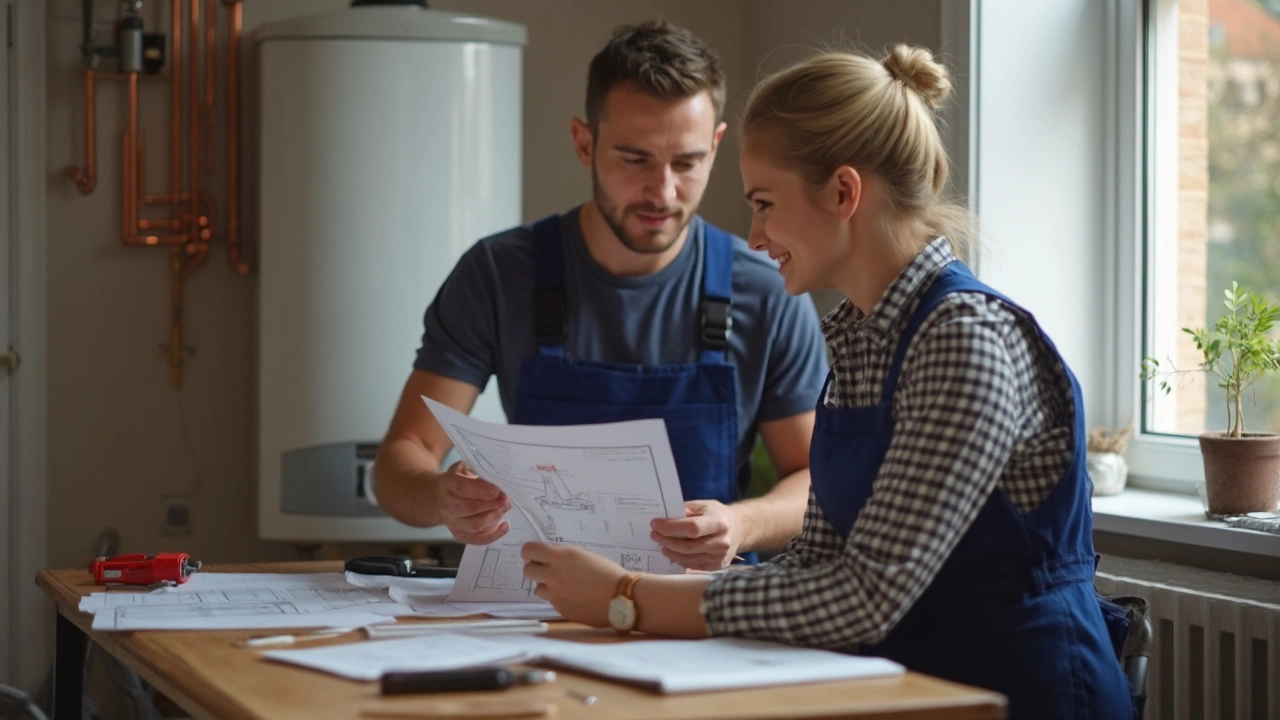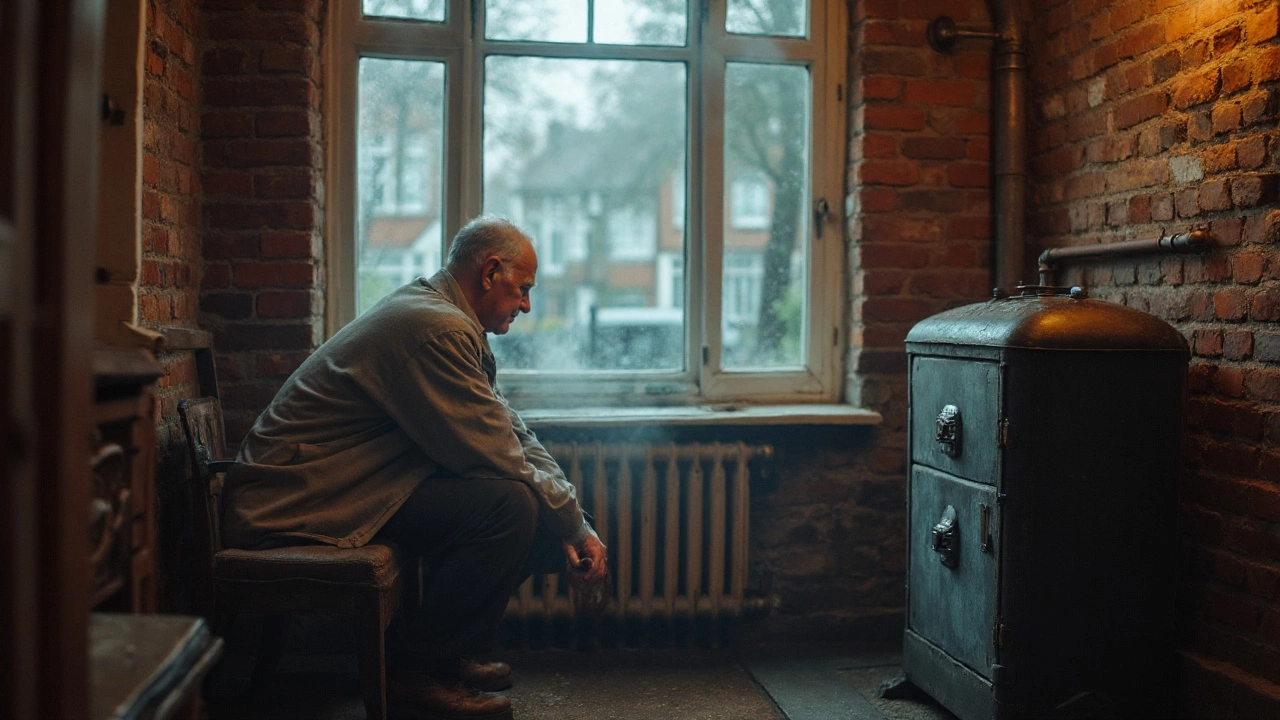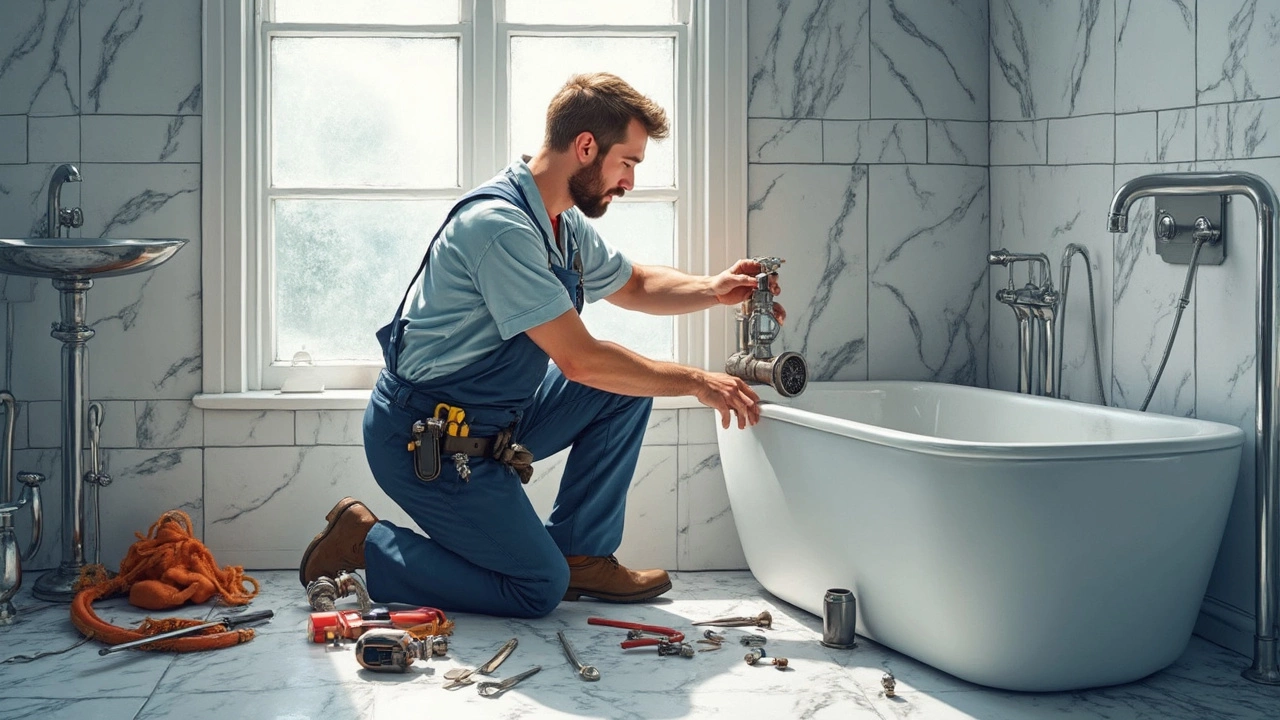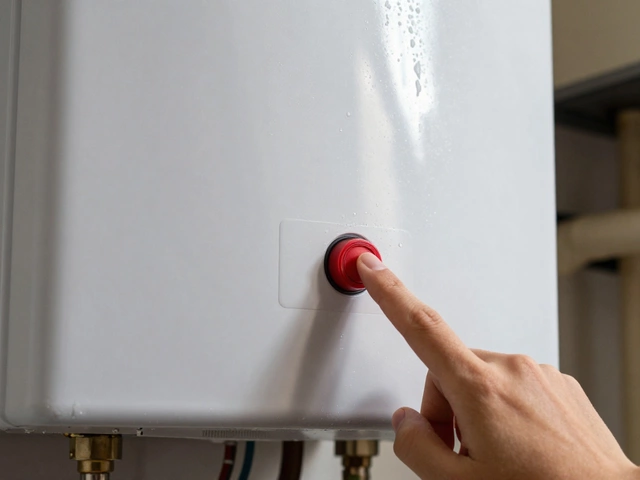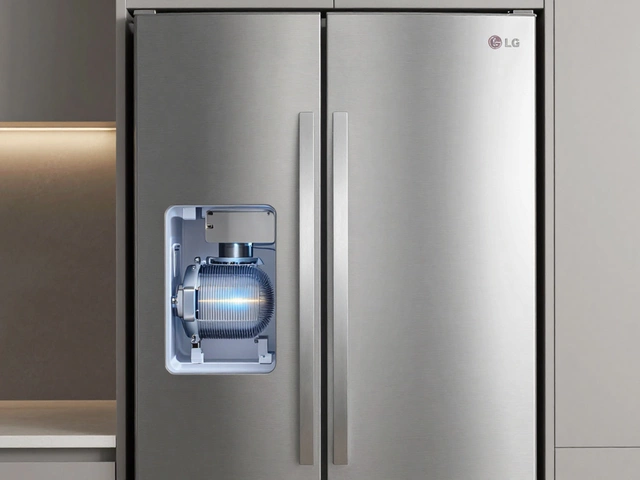Imagine coming home on a freezing January night, turning the dial for a cozy warm blast, and—nothing. You get that sinking feeling. Your boiler’s given up. Next question: who should you call? Most people jump right to plumbers, but do plumbers change boilers? Or do you need someone else, like a heating engineer or a special gas wizard? The answer is more interesting than you might guess—lots of people assume plumbing and heating are all the same, but in the world of home repairs, things are never so simple.
What Do Plumbers Actually Do?
People usually picture a plumber with a wrench fixing a leaky tap or unblocking the loo, but the scope of a plumber's work is pretty wide. Plumbers are pros at anything involving water pipes, drainage, bathrooms, even appliance installations. If it leaks, flows, or flushes, they’re your first call. But when it comes to boilers, it gets a little trickier. Standard plumbing qualifications in the UK, US, and most European countries cover water systems and heating pipes—but not necessarily working on gas appliances like boilers. In fact, anyone working with natural gas or LPG appliances legally needs extra certification. In the UK, that's Gas Safe registration—no getting around it. Plumbing training only gets you so far; to install, repair, or replace a boiler safely, you need a pro who knows gas like the back of his hand.
Still, many plumbers double-up as gas engineers. This means plenty of the folks advertising “plumbing and heating” services are more than qualified to deal with boilers, including replacements. So, yes, a plumber can change your boiler—but you have to check they’re also Gas Safe registered. If you’re reading from the US, similar rules apply: look for proper state or city licensing, and always ask about credentials—never just assume. Skipping this step isn’t worth the risk. The wrong person fiddling with your gas system doesn’t just void warranties; it can literally be life-threatening. The last thing you want is a carbon monoxide scare because you called a regular plumber for a specialist job.
On the flip side, not all plumbers want to deal with boilers. Gas appliances come with their own headaches and legal hoops, especially as modern boilers pack in all sorts of digital controls and safety features. Some plumbers stick strictly to water and heating pipes and leave gas work to specialists. That’s why, when calling around, you often see firms listing themselves as "Heath and Plumbing Engineers" or "Gas Safe Heating Specialists." These folks are trained in both worlds, usually meaning you’re in good hands for anything boiler-related.
Boilers: More Than Just Hot Water
Let’s talk about why boilers aren’t quite like your average household appliance. A modern boiler isn’t just something that makes hot water for your shower and radiators. It’s a pressurized, gas-burning machine packed with sensors, electronic boards, and strict safety systems. Since they burn gas to heat water, any mix-up with installation or maintenance can turn into a real hazard. That’s why most countries have tough rules around who gets to install, replace, or even open up a boiler.
Boilers come in different shapes and sizes: combi boilers, system boilers, and regular (or heat-only) boilers. Each type works a bit differently, but they all need proper plumbing to carry water and a gas connection for fuel. On top of that, there’s venting to think about, wiring to connect, water pressures to get right, and strict checks for leaks and emissions.
You might be surprised to learn that in the UK, about 21 million homes rely on gas boilers. The UK’s Gas Safe Register only lists around 130,000 registered gas engineers. That means only a small chunk of plumbers are legally allowed to work on gas boilers. In the US, numbers are similar based on state, but licensing requirements can vary.
Boilers often need to be changed not because they’ve exploded, but because they’re getting inefficient or new regulations come in. Technology moves fast: new condensing boilers are up to 90% efficient, while older models lose much more energy. Swapping an old, non-condensing boiler for a modern one could slice hundreds off your yearly bills—not a bad motivation, especially with energy costs doing whatever the heck they want these days.
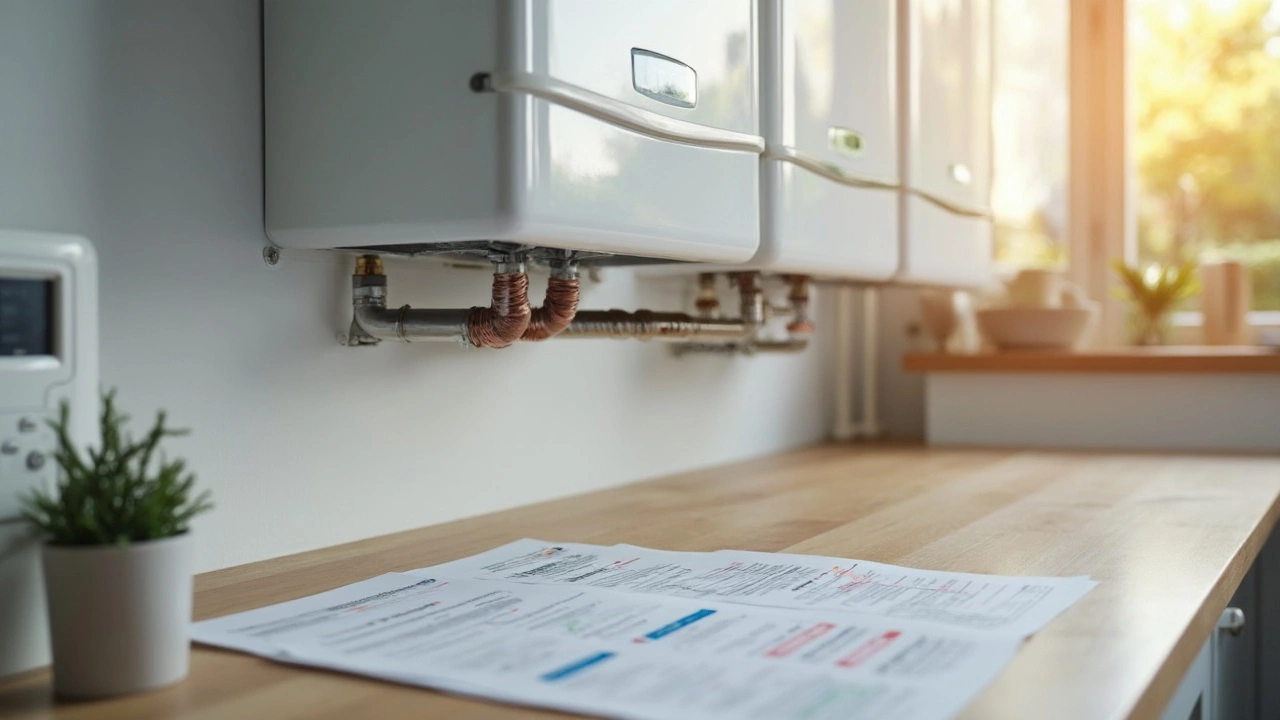
Do You Need a Plumber or a Heating Engineer?
This is where things get practical. Fancy titles aside, you want someone who is both a qualified plumber and a certified boiler installation expert. In the UK and Ireland, check for the blue Gas Safe badge. In the US, look up local gas licenses. Don’t let the terminology mess with your head—heating engineer, boiler technician, or gas plumber might all mean basically the same thing: someone with both plumbing and gas credentials. When in doubt, always ask to see their certificates or look up their registration number on the relevant official site.
If your home’s heating system relies on an oil-fired boiler, the rules change slightly. Oil heating engineers usually need OFTEC registration in the UK—not Gas Safe. In the US and elsewhere, watch for state rules and oil safety qualifications. Yet, the need for a plumbing and oil heating combo is just as real.
The easiest way to check? Ask your chosen pro directly: “Are you certified to install (or change) gas/oil boilers?” Don’t worry about sounding fussy—it’s your home, your family, and your peace of mind. Qualified pros are always happy to prove their expertise. Those that dodge the question should be avoided like soggy toast.
Here’s something you might not know: a good boiler installer will inspect your whole heating setup, not just swap units. They’ll check pipe sizes, water pressure, controls, safety valves, and make sure the flue vents gases well outside and not into your attic or under the stairs. That full-system check is actually required by building regulations and decent heating firms won’t skip it, not if they want to keep their good name.
One survey from Which? in 2023 found that customers rated boiler installer satisfaction at 81% when they chose an engineer recommended by friends or family, compared to just 65% from random website searches. Always helps to have a recommendation when it comes to work this important.
How Boiler Change-Outs Work: The Process and What to Expect
So, the big day’s here: your old boiler’s being put out to pasture. What actually happens? This is where knowing what the job involves can save you hassle, money, and a world of stress.
Here’s a step-by-step look at a typical boiler replacement:
- Your installer will survey the job ahead. They’ll size up your home, talk through all radiator and hot water needs, inspect the gas supply, and look at your venting options. It’s not just plug-and-play like swapping a toaster.
- On removal day, power and gas get safely shut off. The system is drained, the old boiler is carefully unhooked and removed for proper disposal—often, this gets recycled, so old metal doesn’t go to landfill.
- Next, your installer may flush out old sludge or build-up inside the heating pipes. This is called a "power flush" and can be key to making sure your new boiler runs efficiently, especially in older homes.
- The new boiler is put in place, and the pipes are reconnected. Sometimes, upgrades are needed—like fitting new valves or a magnetic filter to catch future dirt before it wrecks the shiny new system.
- The installer will run the wiring for controls, like smart thermostats or old-fashioned dials, and connect the flue to vent out gases safely.
- With everything assembled, the system is filled up and pressure-tested for leaks. Your engineer will fire up the boiler, double-check emissions for safety, and adjust settings for the most efficient performance.
- A proper installer will explain how to use the controls, go over warranties, and fill out service records and building regulation certificates. In the UK, you’ll get a “Building Regulations Compliance Certificate” through the mail from Gas Safe after your boiler’s been signed off.
For most replacement jobs, expect half a day to two days, depending on how complicated your system is. The table below gives you a good idea of typical installation times and average costs nationwide:
| Job Type | Typical Duration | Average UK Cost (2024 Figures) |
|---|---|---|
| Combi-to-Combi Swap (Same Location) | 1 Day | £1,800–£2,600 |
| System/Regular Boiler Replacement | 1–2 Days | £2,000–£3,200 |
| Conversion (System to Combi) | 2–3 Days | £2,500–£4,000 |
Prices and timing will vary depending on where you live and what extras are needed—think new thermostats, controls, or major pipe upgrades.
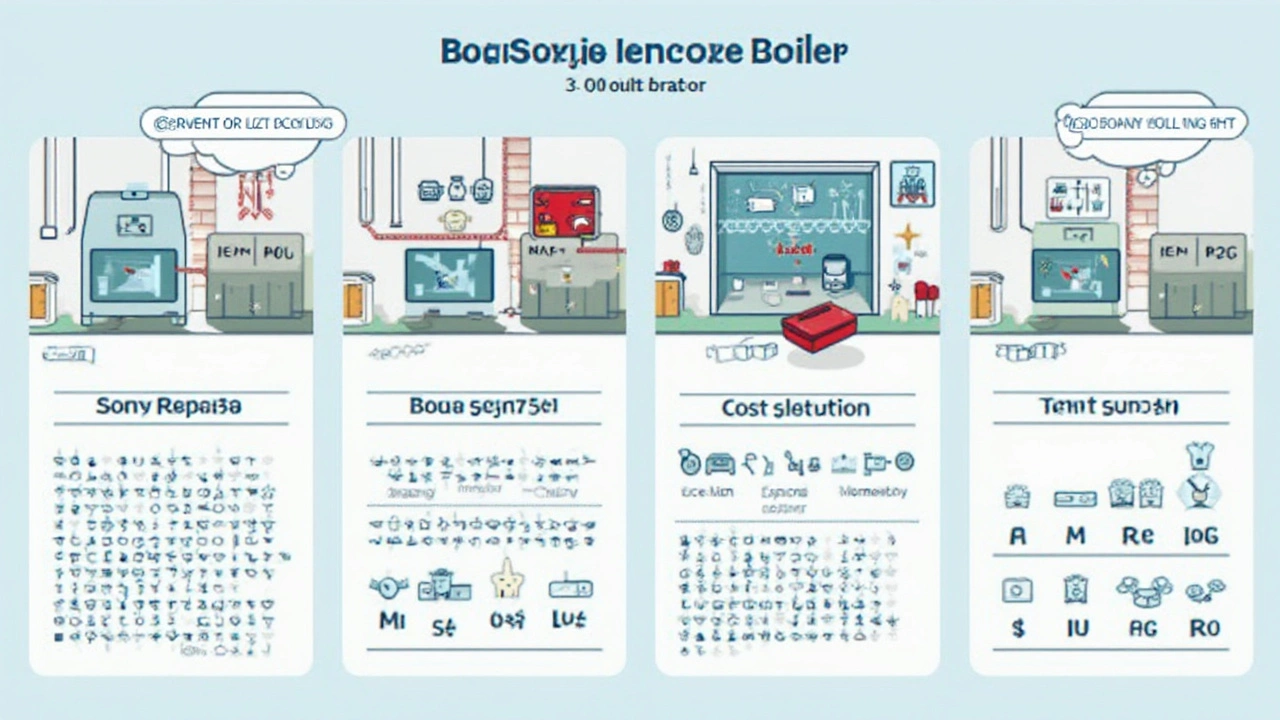
Tips for Choosing Your Boiler Pro and Staying on the Safe Side
Nobody wants to pay over the odds, take days off work, or live in a cold house longer than needed just because they picked the wrong guy for the job. Here’s what separates the chancers from the better tradespeople:
- Double-check the Gas Safe or relevant registration—even if you trust the voice on the phone or the logo on the van.
- Get at least three quotes, and ignore the lowest if it sounds too good to be true. Cheap can get expensive if corners are cut.
- If possible, pick a local installer with a real-world presence—recommendations from neighbours or community online groups can be gold-dust.
- Ask upfront about warranties and post-installation service. Most new boilers have 5-10 year parts-and-labour guarantees, but only if fitted by an authorized pro.
- Make sure your installer does a system flush and fits a magnetic filter; these two things protect your new boiler and keep it running sweetly.
- Ask for a detailed invoice listing what’s been done and all parts used—handy for resale value and service records.
- Don’t let anyone pressure you into the job on the spot. Cooling-off periods are a legal right if you sign up at home.
Interesting data: According to a 2024 report by the UK’s Office for National Statistics, improper boiler work is still one of the top three sources of carbon monoxide incidents in homes. That’s a sobering reminder to focus on qualifications above all else.
There you go—plumbers can definitely change boilers, but always make sure they’ve got the right gas papers in hand. Next time the hot water runs cold, you’ll know exactly who to call—and how to grill them before you hand over your keys or your cash.
